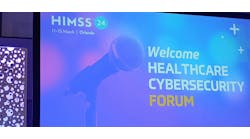University of Minnesota Announces New Center for Medical Device Cybersecurity
According to a Sept. 8 news release, the University of Minnesota has announced its new Center for Medical Device Cybersecurity (CMDC). The release states that “The center will foster university-industry-government collaborations to ensure that medical devices are both safe and secure from the growing number of cybersecurity threats.”
Further, “The CMDC was formed in response to a request from members of the medical device manufacturing industry to form a collaborative hub for discovery, outreach, and workforce training in the emerging device security field. Enhancing the State of Minnesota’s strong legacy in medical devices, the center will focus on developing new research, technologies, education, and training to address potential cybersecurity threats.”
The release explains that the center builds on expertise from institutes and centers across the university, including the University of Minnesota College of Science and Engineering, the Earl E. Bakken Medical Devices Center, the Technological Leadership Institute, and the Office of the Vice President for Research. The center also depends on the abilities of the University’s faculty, staff, and students.
“The CMDC will be housed within the Technological Leadership Institute (TLI), an interdisciplinary center within the College of Science and Engineering with a mission of developing local and global leaders for technology-intensive industries,” the release continues.
The CMDC is founded and funded by five health industry companies: Boston Scientific, Smiths Medical, Optum, Medtronic, and Abbott Laboratories. Members of these companies are invited to take part in the CMDC Steering Committee, and more members will be recruited over the next two years.
Allison Miller, CISO at Optum was quoted in the release saying that “Cybersecurity for medical devices is critical in retaining the trust consumers place in healthcare companies for how the technology is used, and how health information is protected. By partnering with academic organizations, industry experts, and our peers we can help formulate policies, regulatory proposals, and state-of-the-art testing so that we not only support the long-term success of secure medical devices, but also protect the patients who rely on medical devices for their care therapies.”
That said, “The center is currently led by interim director Katey Pelican of the University of Minnesota Strategic Partnerships and Research Collaborative (SPARC).”
The release concludes that “As part of its inaugural year, the center is hosting roundtables and a hackathon, organizing networking and training opportunities, establishing a medical device cybersecurity short course that TLI is launching this fall, and developing a medical device cybersecurity summer internship program.”


